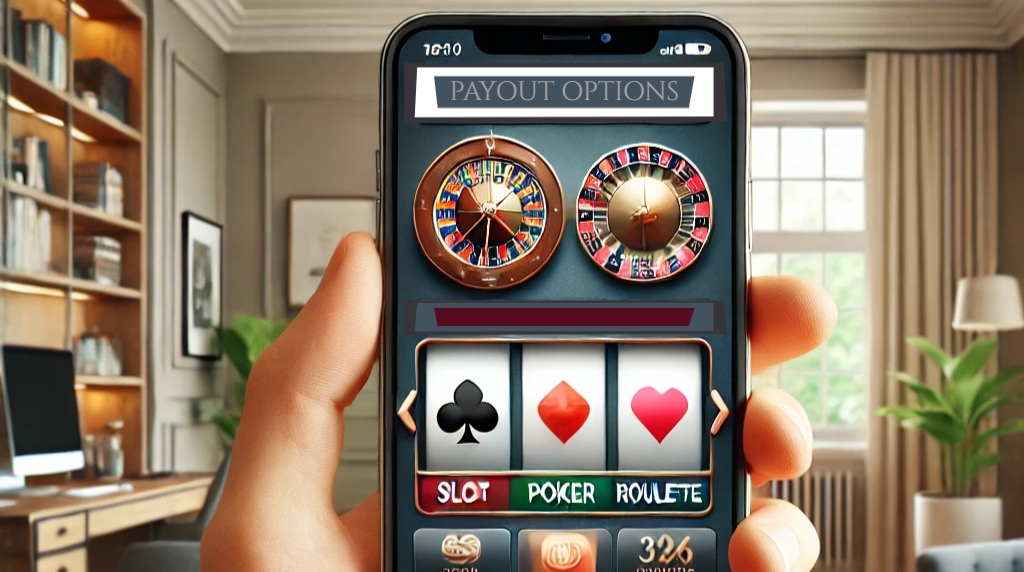Definitive Guide to the Rules and Play of Pai Gow Poker
Pai Gow Poker is a unique and captivating casino game that blends elements of traditional Chinese dominoes with American poker. Played with a standard 52-card deck and one joker, this game challenges players to use strategic thinking and skill to. Whether you’re stepping into a casino for the first time or exploring online poker sites, understanding the Pai Gow Poker rules is.

How to play Pai Gow Poker: the definitive guide to this casino game. © Dan Holmes, Boone Digital
Basics of Pai Gow Poker
The Pai Gow Poker game revolves around splitting seven cards dealt to each player into two hands: a five-card “high” hand and a two-card “low” hand. According to standard poker rankings, the high hand must always rank higher than the low hand. Both hands must beat the dealer’s corresponding hands to win. If one hand wins and the other loses, the round ends in a “push,” and your wager is returned.
The Pai Gow casino game is not only popular for its strategic depth but also for its leisurely pace. Unlike faster-paced games like blackjack or roulette, Pai Gow Poker allows for a more relaxed gameplay experience, making it ideal for players who enjoy thoughtful decision-making.
Setting Up the Pai Gow Poker Game
Before delving into strategies, let’s walk through how the Pai Gow Poker game is typically played:
- The Deal: Each player, including the dealer, receives seven cards. These are dealt face-down, allowing players to arrange their hands strategically.
- The Joker: The joker in Pai Gow Poker is not a true wild card. Instead, it can be used to complete straights, flushes, or act as an ace in other scenarios.
- Splitting the Hands: Players arrange their cards into two hands: the five-card “high” hand follows standard poker rules (e.g., straights, flushes, full houses), and the two-card “low” hand can only contain pairs or high cards.
- House Rules: Most casinos employ a “house way,” a predefined strategy for setting the dealer’s hands. This ensures consistency and fairness.
- Comparing Hands: Once hands are set, they are revealed and compared to the dealer’s hands. Winning both hands secures your bet, while losing both results in a loss.
Key Pai Gow Rules to Remember
Mastering Pai Gow rules requires attention to detail and adherence to specific guidelines:
The high hand must always rank higher than the low hand. If not, your hand is considered “fouled,” and you automatically lose the round.
In case of a tie for either hand, the dealer wins the tie, an advantage known as the “house edge.”
Many tables offer side bets or bonuses for achieving certain hand combinations, adding an extra layer of excitement to the game.
Understanding these Pai Gow Poker rules will significantly improve your gameplay and decision-making at the table.
What is Double-Hand Poker?
Double-Hand Poker, another name for Pai Gow Poker, emphasizes the core mechanic of the game: dividing your cards into two separate hands. This distinguishing feature sets Pai Gow Poker apart from other casino games. While most poker variations focus on a single hand, this format requires balancing two distinct hands for a successful outcome.
Strategizing for Double-Hand Poker is both an art and a science. For example, if you’re dealt a pair of aces alongside a small pair, deciding how to split them involves weighing the potential strength of each hand. Should you keep the aces in your high hand for a strong showing, or should you balance the hands to improve your overall chances?
Some of the top Pai Gow Poker tournaments embrace the intricacies of Double-Hand Poker, drawing seasoned players from around the world. Events like the annual World Series of Pai Gow Poker offer players a chance to showcase their skills in competitive settings, with lucrative prize pools at stake.
The Role of Strategy in Pai Gow Poker
Winning at Pai Gow Poker is as much about strategic thinking as it is about luck. While the cards you’re dealt determine your options, how you set your hands can make or break your chances.
Common Strategies in Pai Gow Poker
- Balance vs. Strength: Deciding whether to focus on creating one very strong hand or two balanced hands is critical. While a strong high hand might seem appealing, neglecting your low hand increases the risk of losing to the dealer.
- House Way Insight: Familiarizing yourself with the house way—how the dealer sets their hands—can give you an edge in anticipating outcomes and making smarter decisions.
- Side Bets: Many players place side bets on specific outcomes, such as achieving a flush or a full house. While these bets come with higher risks, they can yield substantial rewards.
The Appeal of Pai Gow as a Casino Game
One reason players gravitate toward Pai Gow Poker is its accessibility. Unlike more complex games like craps or baccarat, Pai Gow rules are straightforward and easy to learn. Additionally, the game’s slower pace provides ample time for contemplation, making it less intimidating for newcomers.
Another advantage is the low volatility of the Pai Gow casino game. Thanks to the frequent occurrence of pushes, players often find their bankrolls last longer compared to other table games, providing more extended entertainment.
For those exploring ways to broaden their casino repertoire, Pai Gow Poker offers a refreshing alternative to popular options like blackjack. If you’ve ever wondered how to play blackjack online, consider Pai Gow Poker as your next adventure—it combines familiar card-playing mechanics with a unique strategic twist.
Pai Gow in the Digital Age
The rise of online poker sites has made Pai Gow Poker more accessible than ever before. Many platforms now offer virtual and live dealer versions of the game, allowing players to enjoy the Pai Gow experience from the comfort of their homes. Online poker sites often include tutorials and practice modes, helping beginners refine their skills before wagering real money when they play blackjack online.
Tips for New Players
If you’re new to Pai Gow Poker, here are some quick tips to get started:
- Understand the Basics: Spend time familiarizing yourself with Pai Gow rules and hand rankings. Knowing how to set your hands properly is half the battle.
- Practice Makes Perfect: Use free versions of the game on online platforms to gain confidence without financial risk.
- Stay Mindful of Your Bankroll: The low-stakes nature of Pai Gow Poker can be deceptive. Set limits and manage your bets wisely to maximize your playtime.
Social Aspect of Pai Gow Poker
One of the more understated charms of the Pai Gow Poker game is its social nature. Players often root for each other to push, creating a collaborative and relaxed atmosphere at the table. Unlike high-pressure games where competition is fierce, Pai Gow Poker fosters camaraderie and shared enjoyment among participants.
Pai Gow Poker is a fascinating blend of strategy, skill, and luck that appeals to players of all levels. By mastering the Pai Gow Poker rules, understanding the intricacies of double-hand poker, and embracing the game’s strategic opportunities, you’ll unlock a world of engaging gameplay.
Whether you’re sitting at a Pai Gow table in a bustling casino or exploring the game on online poker sites, this timeless card game is sure to provide hours of entertainment.
 7 Politically Incorrect Slots for the Connoisseur Who’s Seen It All
7 Politically Incorrect Slots for the Connoisseur Who’s Seen It All
 Casino Payment Delay Red Flags: When Waiting Is a Concern
Casino Payment Delay Red Flags: When Waiting Is a Concern
 US Оnline Casinos Turn to Celebrities to Attract Consumers
US Оnline Casinos Turn to Celebrities to Attract Consumers
 Inside G2E Las Vegas 2025, from Prediction Markets to Marble Runs
Inside G2E Las Vegas 2025, from Prediction Markets to Marble Runs